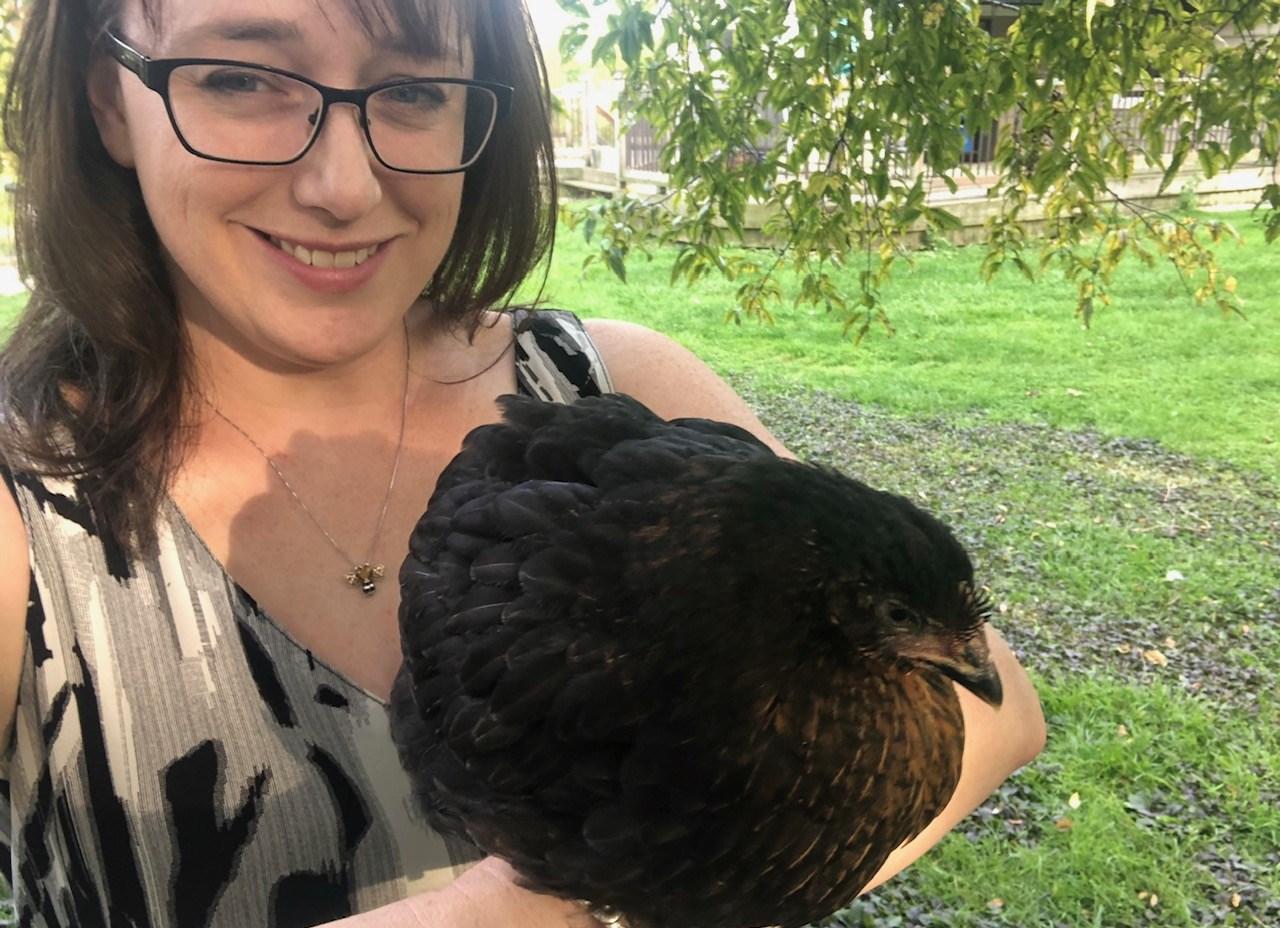
3 minute read
Bringing some farm life to your home!
Rodrigues Farm gives you the chance to foster baby chicks for up to eight weeks and return them to the farm when they are grown
Mounties Report
Advertisement
Sarah Rodrigues, owner of Rodrigues Farm along side her husband Ivan, holds a baby chick. They recently announced the chick hatchling rental program is returning for its fourth year in a row. From now until May, you can sign up to foster two baby chicks and watch as they grow and develop into chickens.
By Casandra Turnbull
Rodrigues Farm is bringing back its widely popular chick rental program for the fourth year in a row. If you’ve ever wondered what it’s like raising livestock and hope to get that authentic farmhand experience, this chick-lets hatchling rental program might be for you!

For $175, plus a $100 deposit, families, individuals, schools, or organizations can take home a complete kit with two baby chicks, brooder coop, heat lamp, feeder, waterer, food and bedding, along with a instruction manual and educational material. You’re provided with everything you need to raise the chicks from days old to almost fully grown. After six to eight weeks, you bring the equipment and the chicks back to the farm.
Rodrigues Farm, located just outside of Paris on Drumbo Road, hatched the program during Covid and were pleasantly surprised by the number of interested participants.
“Given that everyone was stuck at home, with the schools closed and most activities closed, we decided to test out the idea,” explained Sarah Rodrigues, who owns the farm alongside her husband Ivan.
Continued on page 14
“Initially we anticipated 5-10 rentals, but when the program was featured on CTV news, we ended up selling over 70 rentals from May toAugust.”
To keep up with demand, the Rodrigues’ spent every weekend and spare moment hand-making crates, at the height of the pandemic, when building supplies were scarce It was a laboursome side project that really flourished during the early stages of the pandemic.
In the years since, on average, they see 30-50 families participate, however, this year they are only offering the program from March to May as the summer rentals often interfere with holidays. The Rodrigues’ also have full-time jobs, so they don’t want this side project to take up too much time
While the program is popular for families, especially ones with young children, Rodrigues said they’ve had several schools participate as well, mainly to learn about the chicken’s life cycle, a bit about farming and animal care, and to take advantage of the opportunity to cuddle and love the young chicks. The older classes, she said, use the rental program as a science experiment to document growth and development.
Last year, Granite Landing Retirement home opted into the program, calling it a wonderful experience on their Google Review. The residents absolutely loved watching them grow from cute little fuzzy chicks, to feathered hens, says the review.
While it might be tempting to keep the chicks as a family pet, Rodrigues says at the end of the program everyone returns them to the farm, and sometimes the goodbyes are emotional.
This full-grown bird on Sarah’s arm is the main reason for launching the chick rental program - the birds are so well socialized by renters that they’re friendly and easy to care for once they are returned to the farm.

“There's been lots of adorable goodbyes and a few tears though, when chickens come back to the farm! At drop-off we always hear all the stories, their names, their quirks, and any funny or cute things the chicks did We love that part!”
Aside from the educational experience people get from partaking in the program, there’s also benefits for the chicks too, says Rodrigues
“Instead of us raising 40 chicks in a big pen in the garage and not being able to spend much time with them individually, they get to go in pairs to people who will give them lots of love and attention. That attention translates into more social, friendly chickens who aren't afraid of people or being handled. They are inherently curious and responsive to affection, so the more they get to play and get treats the better Some families have even trained their chicks to walk at heel and play dead!” Socialization is a nice thing in general, but it has other benefits, she added
“For example, if a chicken requires medical attention later, they're easier to catch and treat. Scared or anti-social chickens may hide their eggs, or nest somewhere unsafe.”
If you’d like to learn more about the program or to sign up to foster a couple of baby chicks this spring, visit the Rodrigues Farm website for more details.










